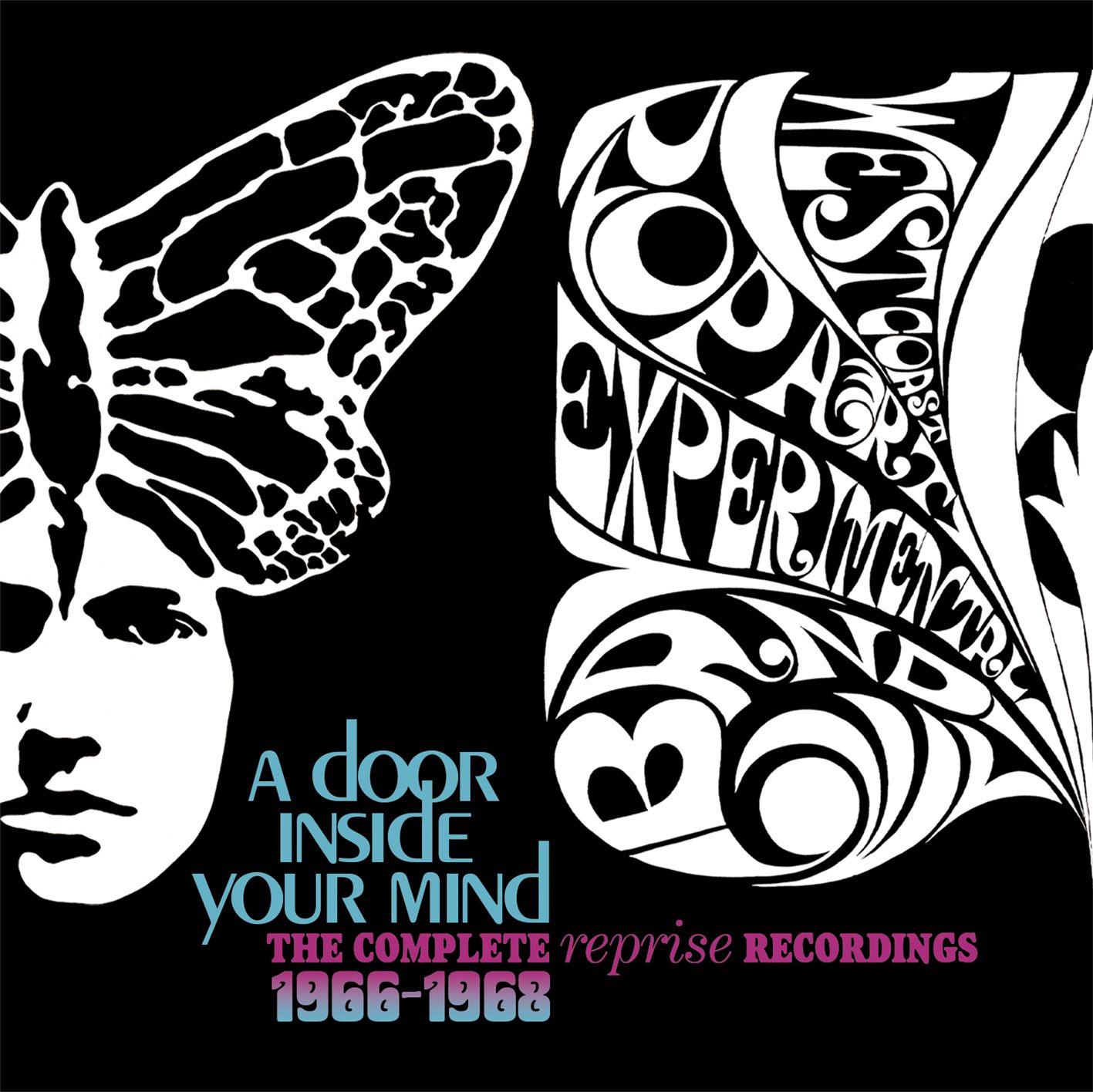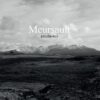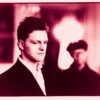It’s almost like Christmas, the morning you open the brightly coloured parcels. Stripping them of their temporary covering, searching for what’s hidden beneath. In this case, it’s not Christmas and this 4-CD box set was not wrapped in brightly coloured wrapping paper, but as I hit play all of those emotions were reawakened from childhood memories of a Yuletide morning. But is this a Yuletide surprise, more than it is a psych parcel of Yuletide ghosts? The West Coast Pop Art Experimental Band were a collaboration between a trio of well-heeled teenage musicians from the Hollywood Hills, Dan and Shaun Harris, and schoolmate Michael Lloyd, along with wealthy wannabe-hipster playboy in his mid-30s, Bob Markley. The recordings here are of the band’s second, third and fourth albums and include both the stereo and mono versions. A fourth bonus disc has been compiled, comprising an abundance of previously unissued recordings, out-takes and alternate versions.
Regarded as one of the most idiosyncratic groups to emerge during the psychedelic era, they attracted a devoted cult following thanks to their unique sound and recorded three albums for the Reprise. Their debut album released in 1966 was imaginatively titled Volume One and looking at the titles assembled here, all apart from 1968’s Volume 3: A Child’s Guide to Good and Evil and maybe Vol.2 (Breaking Through), would suggest that music was their primary concern. In contrast to their debut album, the three albums that followed provided a psychedelic tone to their approach. It’s this work that provides greater insight into the musicians thinking at the time and echoes the title, ‘A Door Inside Your Mind’. The track that opens the first album is ‘Shifting Sands’ and would suggest a hippie’s outlook. A chilled approach is provided, tambourine, treble led guitar and the soft patter of drums. The vocalist leads with his narration, “You know the love I gave you, is slipping from your hands.”, sung with a soft sweet resonance. Any thoughts of stress, simply slip away. (I’ll have whatever it is they had with their breakfast). The album continues by approaching the subject of the San Francisco earthquake, in the number ‘1906’. An event that recorded a magnitude of 7.9 and is remembered as one of the deadliest in the history of the US. ‘Help I’m A Rock’ follows, which I’d consider an absurd musical folly. A sun-drenched west coast vantage seeps into the music and provides 11 tunes with an uplifting feel to their timbre.
The follow-up revelled in their success. Starting with ‘In The Arena’, the announcer voices the crowd was restless and suggested an air of upcoming trouble. This perhaps echoed the general unease. The U.S. had been involved in the conflict in Vietnam since 1955 and it was the likes of The WCPAEB to keep the issue at the top of the agenda. Unlike their previous album, this was filled with anxiety, which was reflected none more so than in the second track ‘Suppose They Give A War And No One Comes’. The guitars, when they were featured, had been ramped up with a distorted tone that reflected the song’s message. It was suggested that this was based on an African tribal chant, the lyricist announces “… I hate war… I have seen war on the land and the sea… I have seen blood running in the streets… Seen small children starving…” This emotive narration continues, as the band plays beneath. The chorus chimes in “Hear the marching, hear the drums/Suppose they give a war and no one comes,” repeated over and over, culminating in a child left crying. The band certainly had a statement they wished to make in 1967, one which would not be realised for a further eight years. This unease was tempered by other tracks on the album, the likes of ‘Buddha’, and ‘Queen Nymphet’ a number with a C&W leaning, culminating in the track ‘Tracy Had A Hard Day Sunday’ and coming as a perfect conclusion. Tracy certainly had a better end to her week, although the vocalist describes it as cyclical, suggesting that we should all take the rough with the smooth.
Their third album begins with ‘Eighteen Is Over The Hill ‘, and is a wonderful coming of age.‘In The Country’ which in some ways reminded me of later Charlatans. The vocal had me chuckling as it told “San Francisco is dead, in LA no-one is on the street,” the pace at which this number runs is so uplifting, that the vision left by the lyrics made me smile. ‘Another Covid,’ I thought, ‘I remember that’. The image left by the track, ‘Our Drummer Always Plays In The Nude’ was amusing; a track in which the lyrics run “I like very comfortable girls/Who are straight but not quite/Who are ready for new adventures/Ready for the altogether unexpected.” I think that’s what those of us who were not around to remember; 1967 and the Summer of Love were all about. Even though this album is filled with the feeling of free love, it shows a darker side, that of the war in Vietnam and witnessing the casualties that returned. This fed into the work written by the likes provided by Neil Young, Bob Dylan, The Doors and The Grateful Dead, and of course, The WCPAEB tested this, although in not as quite a palatable manner. Songs like ‘A Child’s Guide To Good And Evil’, and its continuing chorus, “Evil doesn’t exist anymore except for the war,” are words you won’t forget. This is songwriting whose brief musical phrasing is strong enough to carry the number with its melody. These darker undercurrents continue, the likes of ‘A Child Of A Few Hours Is Burning To Death’ and ‘Anniversary Of World War III’, whose almost two minutes of silence illustrate what was expected.
The fourth disc titled Under Butterfly Skies features alternative takes of some of the previously featured numbers, except for ‘I Feel Sorry For You’. This is a remarkable demonstration of just how good a recording can be, stripped back and bare of accompaniment. Provided are two versions: the first simply (take four), is better than the second (take 6 – master). Here you are given the engineers vocal “take 6”, but the musician’s breath is also heard during the playback – hardly what I would call a master. Recorded before Ralph McTell’s ‘Streets of London’, it echoes this song, but I would have to ask, how many people remember ‘I Feel Sorry For You’. I found my time spent with this set an enlightening one, travelling back through time and experiencing the feelings and recording practices of a band, other than those who found immense commercial success. Its spaced-out, drug-infused thoughts and feelings, are not necessarily those for a 21st-century audience. Or perhaps we are more enlightened today. This is a volume of the times and events that brought us to where we are and not necessarily one that history will repeat, but who am I kidding?




